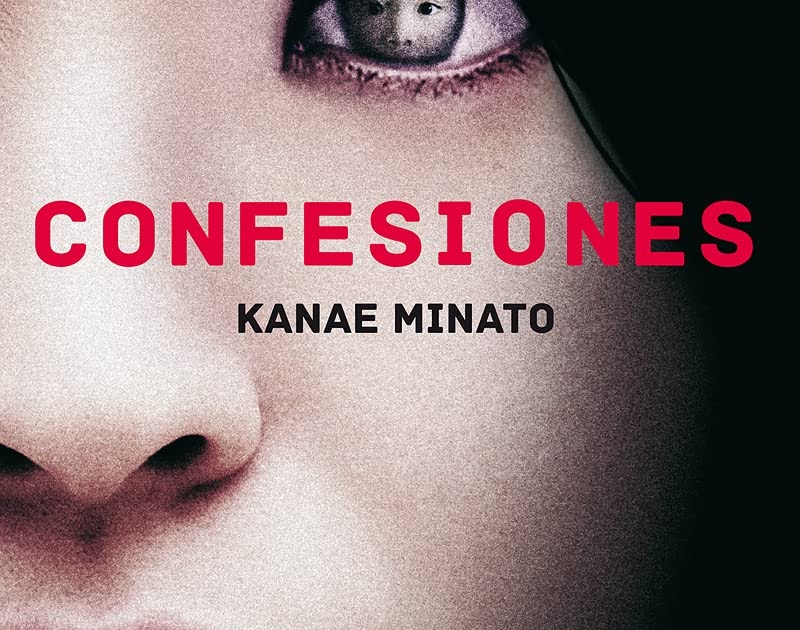
A large number of books that are published (I don’t have statistical data to support that this is a phenomenon that has worsened recently, so I will only suggest it) lack any literary, social, or informative pretension (either intentionally or due to lack of skills), so they are limited to fulfilling an entertainment function. However, although many of us will agree on this, it is difficult to draw the line between what is a literary work and any other text. On the one hand, we have those who, like the professor and youtuber Jesus G. Maestro, say that the last literary work written in Spanish was “One Hundred Years of Solitude” and, after that, Hispanic literature is in decline; and on the other, those enthusiasts who call themselves “writers” after publishing the first chapter of their saga on Wattpad.
Kanae Minato has a foot in each camp. From her first novel, “Confessions” (Kokuhaku), published in 2008, she gives us an example of how entertainment can be combined with a literary and social depth that invites reflection. “Confessions” is the story of a high school teacher who, after the tragic death of her daughter, decides to take justice into her own hands. The novel is narrated from multiple perspectives, showing us the motivations and conflicts of those involved.
I have to say, though, that the author has a certain inclination towards entertainment (she mentions it herself, with some modesty), which is not necessarily a bad thing, especially in the field of mystery and suspense novels. This is evident in the ease with which her books are adapted into movies, series and mangas with great success. Be that as it may, one cannot deny how absorbing her books are, without leaving aside how disturbing they can be. Just consider the themes covered in this book: revenge, cruelty, depression, etc. Thanks to this, she is considered the main exponent of “iyamisu” (イヤミス), a term that refers to those novels that leave you with a feeling of unease after finishing them. In “Confessions”, this uneasiness is mainly produced by the moral ambiguity of her characters, Minato’s strong point.
On the other hand, as they are products aimed at (and perhaps conceived in the same way) mass consumption, there is a recurrent appeal to drama and melodrama, although not to such a degree of implausibility (with few exceptions), which may displease those readers who are more interested in the subject. hardcore.
You can read in the author’s own words her opinions on some of the topics covered in her novel. This time, unfortunately, I didn’t have the chance to talk to her in person, but Kanae Minato gave us some time in her busy schedule to answer some questions related to her book (originally in Japanese).
Interview with Kanae Minato for ULAD
LABORATORYIn various interviews, you have mentioned both Japanese and foreign influences. Can we say that globalization has homogenized literature and other artistic expressions in a similar way, or is there still something we can call “Japanese literature”? If so, what are the “Japanese” elements in your work?
MinatoGlobalization does not mean the uniformity of expression. If we sincerely face human nature, people from different cultures and backgrounds can also feel empathy. If there is a Japanese element in my works, I think it is not in the content, but in the description of the four seasons as the background of the stories.
LABORATORYIn “Confessions,” age-related criminal responsibility (among other responsibilities) is addressed. In most countries, age limits are used that assume maturity in all aspects of life: sexual consent, alcohol consumption, voting in elections, and in this case, assuming responsibility for acts. This is because the areas of the brain related to judgment and decision-making are assumed to be sufficiently developed. However, we cannot ignore the role of young people in today’s society. Do you agree with what is called the “infantilization of society”? If so, should it influence the determination of the age of majority? Also, should we set the same age limit for all of these aspects?
Minato. I do not agree with the idea of the “infantilization of society.” In the era before the Internet, adults provided children with knowledge and common sense appropriate to their age. With the spread of the Internet, regardless of age, individuals can receive information at their discretion. As a result, children are rapidly becoming more mature, and the line between the thoughts and common sense of adults and children is becoming blurred, regardless of the age of majority established by society.
LABORATORY. One character talks about the necessary role of the penal system in preventing personal revenge. In other countries, such as the United States, killing someone in self-defense is considered an inviolable right. In Mexico, lynching robbers or kidnappers is accepted by most. However, in Japan, violence is avoided at all costs. On trains, there are signs indicating that hitting someone (no matter the reason) is a crime that can lead to prison. Still, there is repressed violence that expresses itself in forms of harassment and bullying. Can you share your perspective on these cultural differences in the perception of justice and violence? And how does this influence your stories?
Minato. The perception of self-defense changes considerably depending on the political stability and security of the country, so I am not in a position to comment on the situation in other countries. Even in Japan, corporal punishment in school education was once accepted. I find it important to always be aware of where in time the norms and thoughts reflected in the stories I write are situated, and to continually update my values.
LABORATORYIn your works, we see a noticeable shift in the power dynamics between parents and children, as well as a decline in the authority of the teacher. How do you reflect these changes in your characters and plots? What do you think are the factors that are causing these changes in contemporary Japanese society? And what main impact do they have on education and family structure?
Minato. The decline in teacher authority can be attributed to the improvement in the educational level of parents, the availability of knowledge outside of school (such as in academies), and the increase in parental expectations towards a single child due to the declining birth rate. This has led to an increase in parents intervening in school over trivial matters. I reflect these changes in my characters and plots in the same way as I have answered in question 3.
LABORATORYIn “Confessions,” a teacher chooses the path of revenge rather than trust the justice system. What was your motivation for exploring the conflict between revenge and justice? How do you develop this theme through the characters and the plot? Do you think that in certain circumstances revenge can be considered a form of justice, or should it always be condemned?
MinatoI think that the feeling of revenge arises when the judgment of the law does not coincide with the punishment desired by the victim. Revenge is not justice, nor should it necessarily be condemned. I think that it is necessary for society to reflect on how we can control these feelings.
LABORATORY. In your works, children are often depicted performing terrible acts, which raises questions about the inherent evil in human beings. What led you to explore this theme? How do you handle the depiction of evil in child characters? Do you think these actions reflect a universal human nature or are they influenced by factors specific to Japanese society? What message do you wish to convey through these depictions?
MinatoChildren are not innocent beings. They possess both good and evil just like adults. This is not a problem unique to Japan. It is important to create a living environment that allows for judgment between good and evil and emotional control, and for adults to accompany children. The message for readers is contained in the work and is not something the author must explain publicly.
LABORATORYIn your works, the mother is often emphasized as the sole person responsible for upbringing, while the father primarily takes on the role of economic provider. How do you perceive this division of roles in contemporary Japanese society? How do you think these traditional expectations affect family dynamics and child development? Furthermore, how do you explore and question these roles in your works? What understanding do you hope readers will gain about the evolution of these roles in modern society?
MinatoQuestions 1 to 6 are also related to this, but political and social issues, the family structure in contemporary Japan, and the problems of children’s growth and education arising from it are not something that should be discussed at the same time as impressions of an entertainment novel.
LABORATORY. In “Confessions,” the phenomenon of hikikomori is also addressed. This word is originally Japanese, but has been adopted in other languages due to its high incidence. Do you think this phenomenon is so common in Japanese society? Could it be related to cultural factors such as repressed violence, difficulty in confronting, and a preference for isolation? Also, how does it reflect the stigma faced by these people and what are effective preventive or ameliorative measures to address this problem?
Minato. The reasons for hikikomori vary from person to person, so it is difficult to apply a uniform measure, and I believe that it has been a social problem for many years. In my works I only describe one example, and it is not a simple problem that can be directly linked to reality, preventive measures, or improvements. As I mentioned in all the previous questions, fiction novels do not present “answers” but rather suggest “clues to solve” the problems.
LABORATORYIn the digital age, technology has transformed many aspects of everyday life, which is reflected in literature. How do you integrate the influence of technology and social media into your characters and plots? How do you think technology has changed the way isolation, connection, and identity are understood and experienced in contemporary Japanese society? What challenges and opportunities does this topic offer for you as a writer?
Minato. I prefer not to answer questions about problems that I have not yet addressed in my works.
Source: https://unlibroaldia.blogspot.com/2024/08/resena-entrevista-confesiones-de-kanae.html


